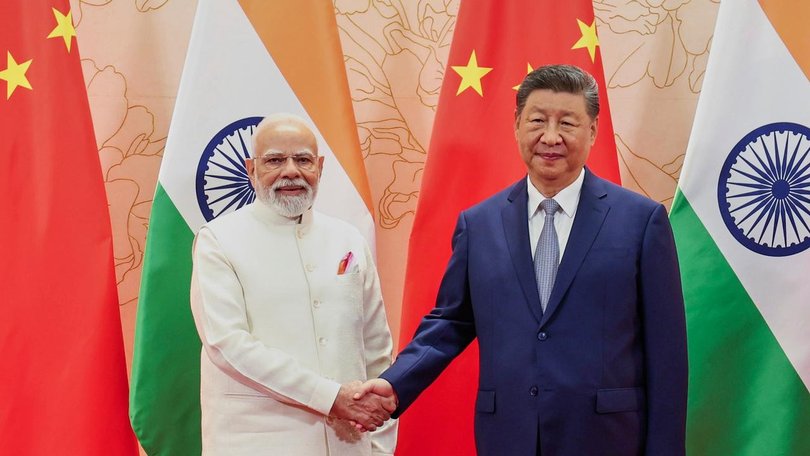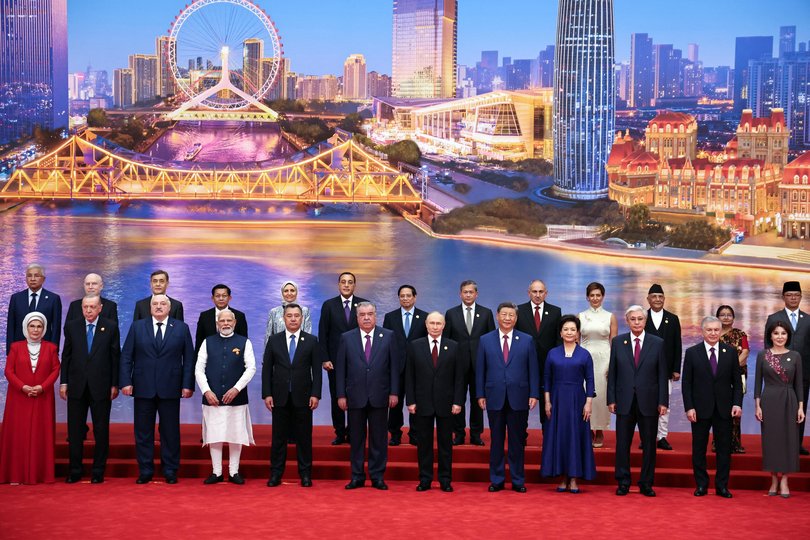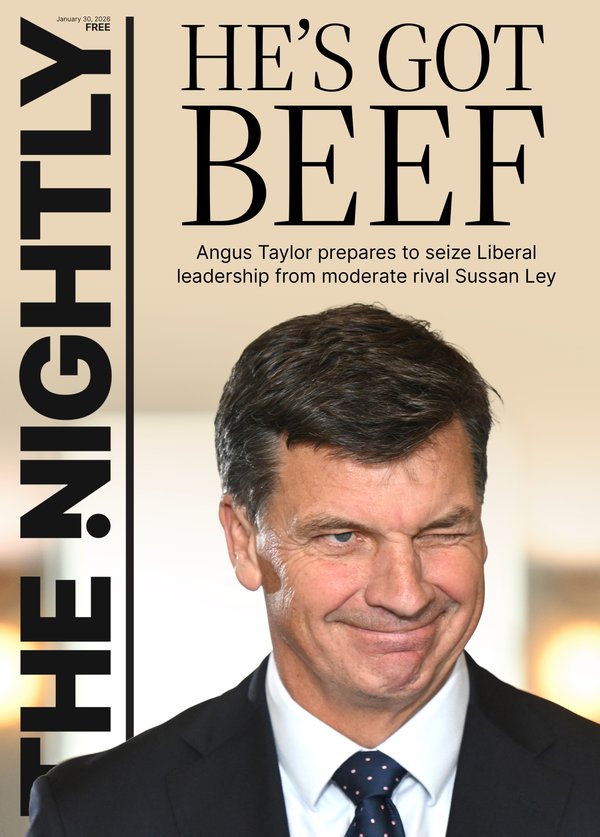Chinese leader Xi Jinping uses summit to demand ‘fairness & justice’
Chinese leader Xi Jinping is hosting a summit hoping to counterbalance Western alliances while promoting security co-operation and economic ties.

Chinese President Xi Jinping called out “bullying behaviour” in the world order as he gathered regional leaders for a summit.
He called on the leaders, pictured below, — including Russia’s Vladimir Putin and India’s Narendra Modi — to “adhere to fairness and justice ... oppose Cold War mentality, camp confrontation, and bullying behaviour”, in a speech in the northern city of Tianjin.
The Shanghai Cooperation Organisation, which is gathering for a two-day summit, comprises China, India, Russia, Pakistan, Iran, Kazakhstan, Kyrgyzstan, Tajikistan, Uzbekistan and Belarus — with 16 more countries affiliated as observers or “dialogue partners”.
Sign up to The Nightly's newsletters.
Get the first look at the digital newspaper, curated daily stories and breaking headlines delivered to your inbox.
By continuing you agree to our Terms and Privacy Policy.China and Russia have sometimes touted the SCO as an alternative to the NATO military alliance.
“The current international situation is becoming chaotic and intertwined,” Xi told the leaders. “The security and development tasks facing member states have become even more challenging.”
“Looking back, despite tumultuous times, we have achieved success by practising the Shanghai spirit,” he said, referring to the name of the group.
“Looking to the future, with the world undergoing turbulence and transformation, we must continue to follow the Shanghai spirit, keep our feet on the ground, forge ahead, and better perform the functions of the organisation.”
The Russia and Belarus presidents joined two dozen Eurasian leaders on Monday at a ceremony on the final day of a showpiece summit aimed at putting Beijing front and centre of regional relations days before a massive military parade in the capital Beijing to mark 80 years since the end of World War II.
Vladimir Putin touched down in Tianjin on Sunday with an entourage of senior politicians and business representatives.
Xi held a flurry of back-to-back bilateral meetings with leaders including Belarusian President Alexander Lukashenko — one of Putin’s staunch allies — and India’s Prime Minister Narendra Modi who is on his first visit to China since since relations between the two countries deteriorated after Chinese and Indian soldiers engaged in deadly border clashes in 2020.
Mr Modi said relations with China have moved in “a meaningful direction”, adding that “there is a peaceful environment at the borders after disengagement”.
He also noted “the importance of peace and tranquillity on the border areas for continued development of bilateral relations.”
Xi said he hoped the Tianjin meeting will “further elevate” and “promote the sustained, healthy and stable development of bilateral relations”,
The two sides should “not let the border issue define the overall China-India relationship”, Xi said, adding that economic development should be their main focus.
“As long as they remain committed to the overarching goal of being partners, not rivals, and providing development opportunities, not threats, China-India relations will flourish and move forward steadily,” Xi said.
Mr Putin due to meet with Xi and Mr Modi in the coming days.

Originally founded by China and Russia in 2001 to cooperate on Central Asian militant threats, the SCO has taken on a broader economic and security mandate in recent years. Attracting leaders from across Asia, its annual meetings have become an important venue for Beijing and Moscow to jointly reshape international norms.
Despite deep divisions among members, US President Donald Trump’s unpredictable policies have helped create “a coalition of like-minded countries against the US,” said Claus Soong, an analyst at the Mercator Institute for China Studies, a think tank based in Berlin.
The ceremonies will probably be as much about optics as about deals. Many dignitaries will stay on for the huge military parade in Beijing.
North Korean leader Kim Jong Un, despite not attending in Tianjin, is expected to join Mr Putin and Xi on the rostrum overlooking Tiananmen Square for Wednesday’s parade.
Originally published on AP
